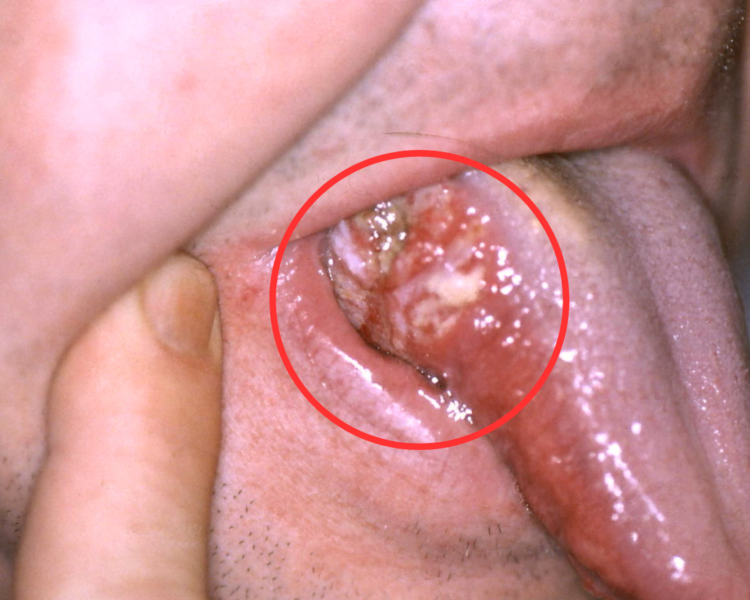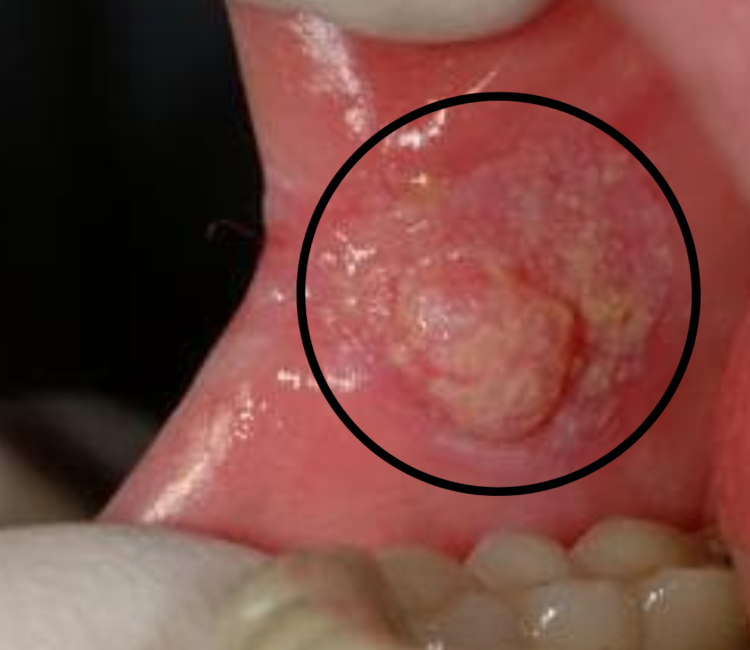Definition
Cancers of the oral cavity and larynx are malignant tumors that can affect the mouth, tongue, lips, throat, vocal cords, and surrounding structures. These cancers often develop due to various risk factors and can have serious consequences if not diagnosed and treated early.

Causes of Cancers of Oral Cavity and Larynx
The development of these cancers can be attributed to several factors, including:
Tobacco Use: Smoking cigarettes, cigars, or using smokeless tobacco greatly increases the risk.
Alcohol Consumption: Heavy and prolonged alcohol consumption is a significant risk factor, especially when combined with tobacco use.
Human Papillomavirus (HPV): Certain strains of HPV have been linked to oral and throat cancers.
Diet: A diet low in fruits and vegetables may contribute to the risk.
Sun Exposure: Lip cancer can be associated with prolonged sun exposure.
Genetic Predisposition: A family history of these cancers can increase the likelihood of developing them.
Symptoms of Cancers of Oral Cavity and Larynx
Common oral cavity and Larynx cancer symptoms include:
Persistent Sore Throat: Chronic throat pain or discomfort.
Hoarseness: Changes in voice quality or persistent hoarseness.
Difficulty Swallowing: Pain or difficulty when swallowing.
Ear Pain: Pain radiating to the ear.
Lump or Mass: The presence of a lump, sore, or white/red patch in the mouth or throat.
Persistent Cough: A chronic cough unrelated to other respiratory issues.
Numbness: Numbness or tingling in the mouth or throat area.
In case of cancers of larynx patients may have noisy breathing(stridor) and in advanced cases breathing difficulty

Investigations in a suspected case of cancer of Oral cavity and Larynx
- Diagnostic laryngoscopy
- Biopsy and FNAC of the suspicious lesion
- Imaging studies including CECT,MRI and in some cases PET Scan.
- Blood test for molecular and biological markers in select cases.
Treatment of Cancers of Oral Cavity and Larynx
Effective treatment depends on the type, stage, and location of the cancer. Cancer of oral cavity and larynx treatment options include:
Surgery: Surgical removal of the tumor, surrounding tissues, or lymph nodes may be necessary.
Radiation Therapy: High-energy beams are used to target and destroy cancer cells.
Chemotherapy: Medications to kill cancer cells may be used alone or in combination with other treatments.
Immunotherapy: Drugs that boost the body’s immune system to target cancer cells.
Targeted Therapy: Medications that target specific molecules involved in cancer growth.
Management and Prevention:
To manage and prevent cancers of the oral cavity and larynx:
Avoid Tobacco and Limit Alcohol: Quit smoking and avoid tobacco products. Limit alcohol consumption.
HPV Vaccination: Consider the HPV vaccine as recommended by healthcare professionals.
Sun Protection: Use lip balm with SPF and wear a wide-brimmed hat when in the sun.
Healthy Diet: Consume a diet rich in fruits and vegetables.
Regular Screenings: Routine screenings and oral examinations by a healthcare provider or specialist can aid early detection.
Summary
Cancers of the oral cavity and larynx are serious conditions often caused by factors such as tobacco use, alcohol consumption, HPV, and diet. Symptoms may include persistent sore throat, hoarseness, difficulty swallowing, and unexplained weight loss. Treatment options include surgery, radiation therapy, chemotherapy, immunotherapy, and targeted therapy. Prevention involves avoiding risk factors, such as tobacco and excessive alcohol use, and receiving recommended vaccinations. Early detection through regular screenings is crucial for successful management.

